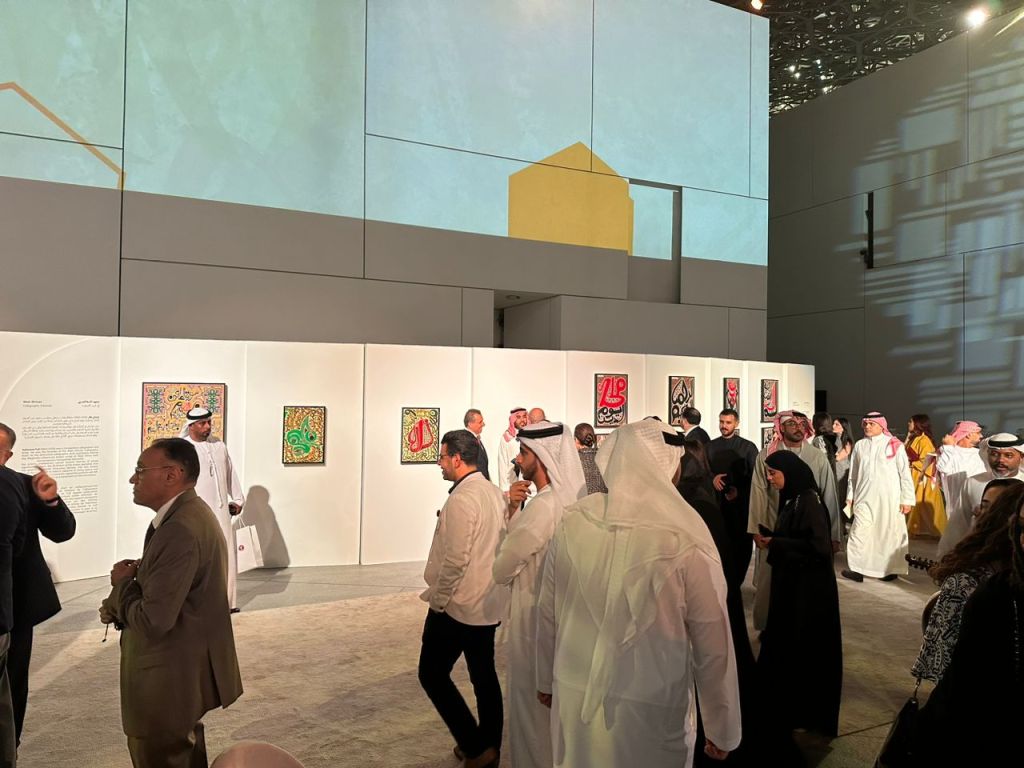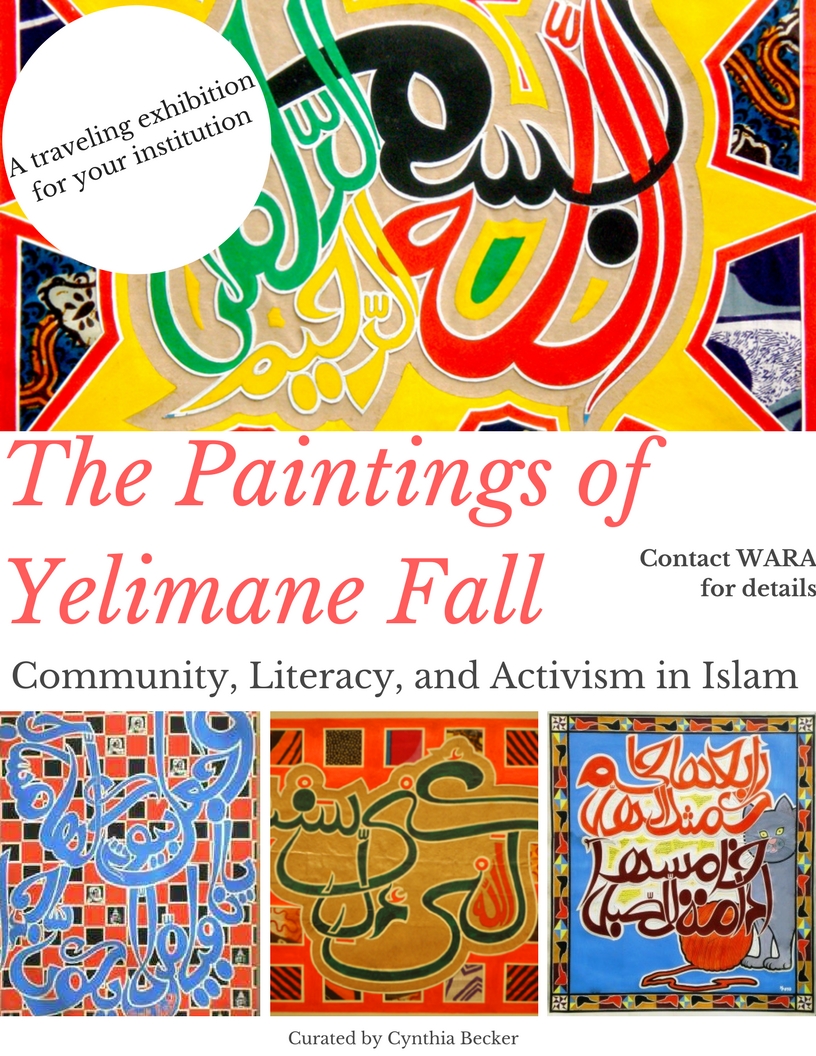:quality(70)/cloudfront-eu-central-1.images.arcpublishing.com/thenational/ITX26QDQEVFYLF7PKP3VHXHAMY.jpg)
This November and December it was our privilege to represent the Republic of Senegal as the Guest of Honor at the 17th Al Burda Awards, hosted by the Ministry of Culture and Youth of the United Arab Emirates. The West African Calligraphy Institute was recognized for its work in cultural sustainability and preservation in the art of Arabic Calligraphy. Fallou was invited to Abu Dhabi in November to represent the institute as a juror in the category of Modern Arabic Calligraphy.
On December 20, 2023 at the Louvre in Abu Dhabi, the Ministry of Culture and Youth hosted the Al Burda award ceremony. Fallou was present to receive the Al Burda award on behalf of the Institute, and we organized a well received exhibition of 11 of Yelimane’s artworks in the gallery where the ceremony took place. The evening was attended by many, including the Minister of Culture for the Republic of Senegal and other Senegalese artists. Alhumdulilah for this beautiful gathering of Islamic Art, artists, poets, calligrapers, and cultural ministers from around the world. We are grateful to Sheikh Abdullah bin Zayed, Mr. Mahmood Al Najjar, and all of the people that made this year’s awards and ceremony possible.





























 We raised almost $1000 for the Institute and Islamic center.
We raised almost $1000 for the Institute and Islamic center.